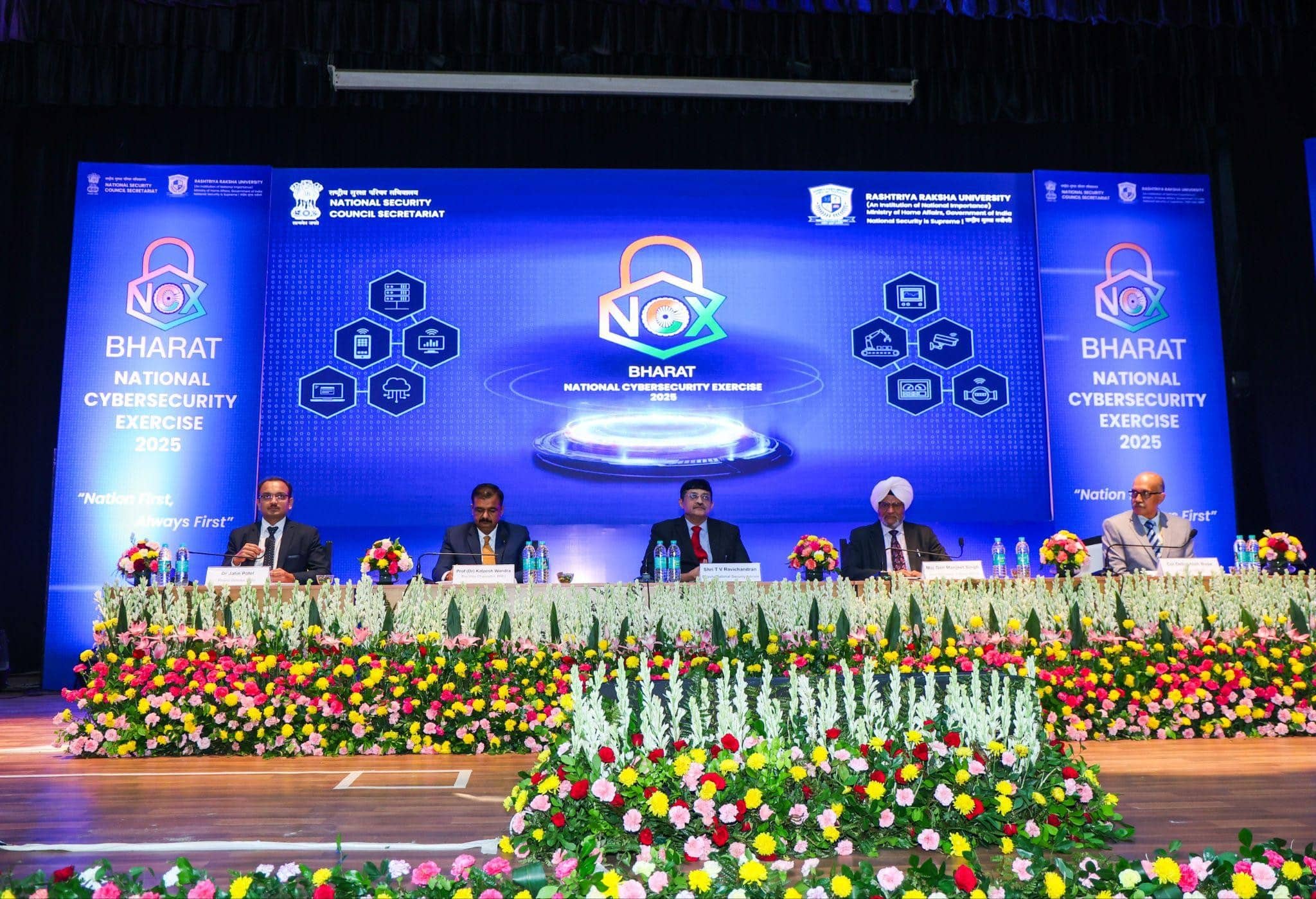National Cybersecurity Exercise 2025 Concludes Focus on Emerging Threats

The Bharat National Cybersecurity Exercise 2025, a pivotal event in India’s cybersecurity framework, has successfully concluded, attracting over 600 participants from various sectors, including cybersecurity experts, policymakers, and industry leaders. Organized by the National Security Council Secretariat (NSCS) and Rashtriya Raksha University (RRU), this year’s exercise focused on critical areas such as Industrial Control Systems (ICS) security and AI-driven cyber threats. The event also featured discussions on Security Operations Centers (SOC), API security, and digital forensics, marking a significant step in enhancing India’s cyber defense capabilities.
Key Highlights of the Exercise
The Bharat National Cybersecurity Exercise 2025 included a comprehensive agenda that addressed various aspects of cybersecurity. A notable feature was the emphasis on Industrial Control Systems (ICS) security, which is increasingly vital as industries become more interconnected. Participants engaged in discussions about AI-driven threats, including adversarial attacks and deepfake manipulation. The exercise also covered essential modules like Security Operations Centers (SOC), API security, Reverse Engineering Malware Analysis (REMA), and Digital Forensics and Incident Response (DFIR). These topics are crucial for building a robust cybersecurity framework that can adapt to evolving threats.
In addition to the main exercise, the Bharat CISOs Conclave and the BHARAT Cybersecurity Startup Exhibition provided platforms for strategic dialogue. These events facilitated knowledge exchange and showcased innovative solutions aimed at strengthening India’s cybersecurity ecosystem. The collaborative efforts highlighted the importance of partnerships between government, academia, and industry in addressing cybersecurity challenges.
Strategic Exercise and Crisis Management
A significant component of the exercise was the Strategic Exercise (Stratex), which rigorously tested inter-agency coordination and crisis management through simulated national-level cyber threat scenarios. This segment was designed to enhance situational awareness and improve collective cyber defense readiness. Participants were challenged to respond to realistic cyber incidents, fostering a deeper understanding of the complexities involved in national cybersecurity.
The Stratex component underscored the necessity for seamless communication and collaboration among various agencies. By simulating real-time responses to cyber threats, the exercise aimed to prepare participants for potential future incidents, ensuring that they are equipped to handle crises effectively. This proactive approach is essential for maintaining national security in an increasingly digital world.
Insights from Key Officials
During the closing address, Shri T. V. Ravichandran, Deputy National Security Advisor, emphasized the importance of integrating evolving cyber threat paradigms into national security strategies. He called for a strong commitment to enhancing collaboration across agencies and fostering continuous innovation to protect the nation’s digital sovereignty. His remarks highlighted the urgency of adapting to the rapidly changing cybersecurity landscape.
Major General Manjeet Singh, Joint Secretary (Cyber) at NSCS, provided an analysis of the lessons learned from the exercise. He pointed out emerging trends in cyber threats and stressed the need for resilient defenses. Singh advocated for sustained capacity building and the sharing of threat intelligence to stay ahead of adversaries. His insights reflect the ongoing challenges faced by cybersecurity professionals and the importance of preparedness.
The Role of Academia and Future Directions
Professor Kalpesh Wandra, Pro Vice-Chancellor of Rashtriya Raksha University, addressed the critical role of academia in enhancing national cybersecurity capabilities. He emphasized that fostering innovation, research, and interdisciplinary collaboration is vital for developing a skilled cybersecurity workforce. Wandra’s perspective highlights the need for educational institutions to contribute actively to the cybersecurity landscape.
Colonel Debashish Bose, Director of NSCS, concluded the event with a Vote of Thanks, recognizing the contributions of all participants and partner organizations. He acknowledged the efforts of Rashtriya Raksha University in hosting the exercise and praised the collective dedication that made the event successful. As the Bharat National Cybersecurity Exercise 2025 wraps up, it leaves a legacy of collaboration and innovation, paving the way for a secure and self-reliant digital India.
Observer Voice is the one stop site for National, International news, Sports, Editor’s Choice, Art/culture contents, Quotes and much more. We also cover historical contents. Historical contents includes World History, Indian History, and what happened today. The website also covers Entertainment across the India and World.
Follow Us on Twitter, Instagram, Facebook, & LinkedIn

